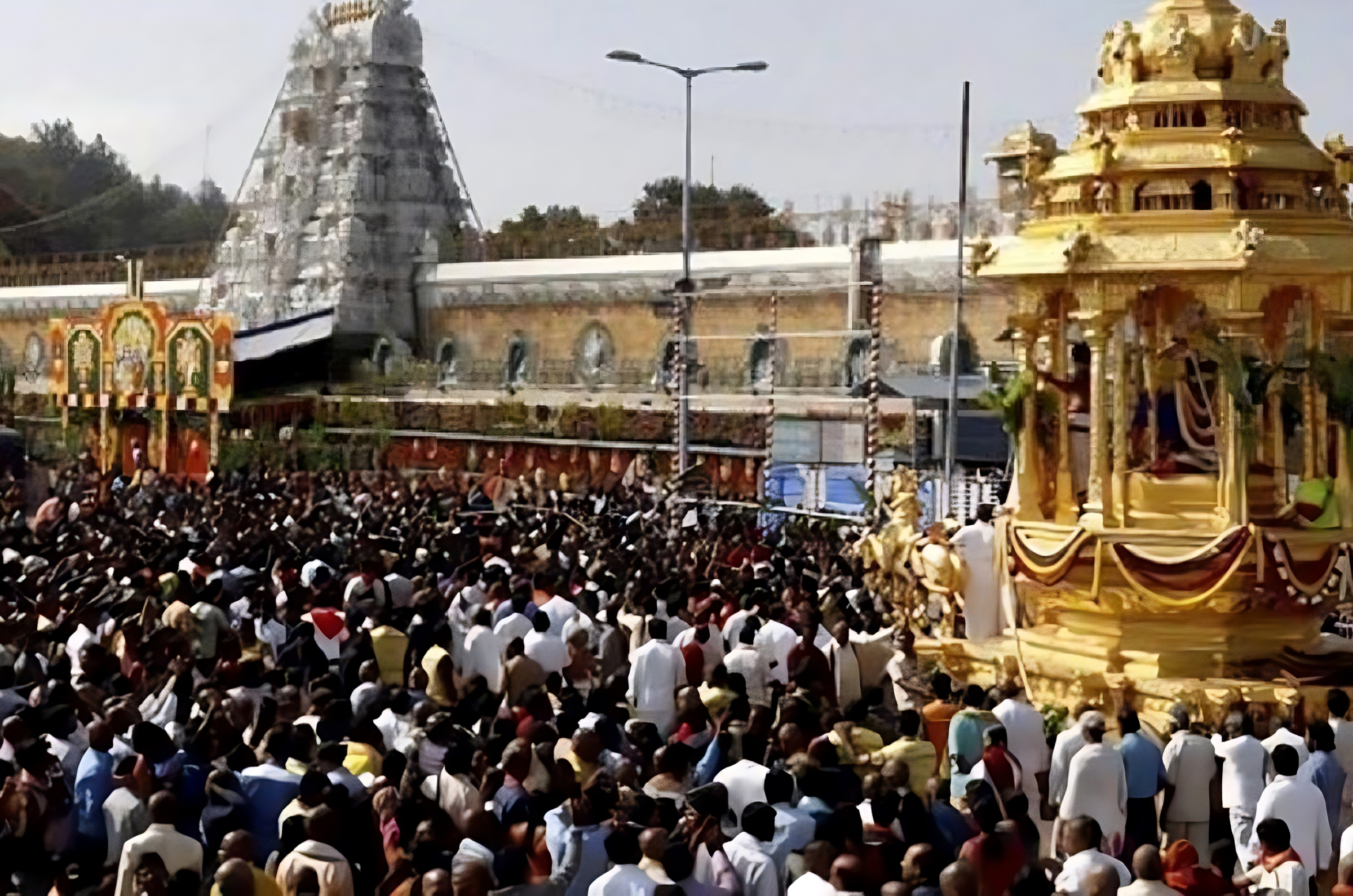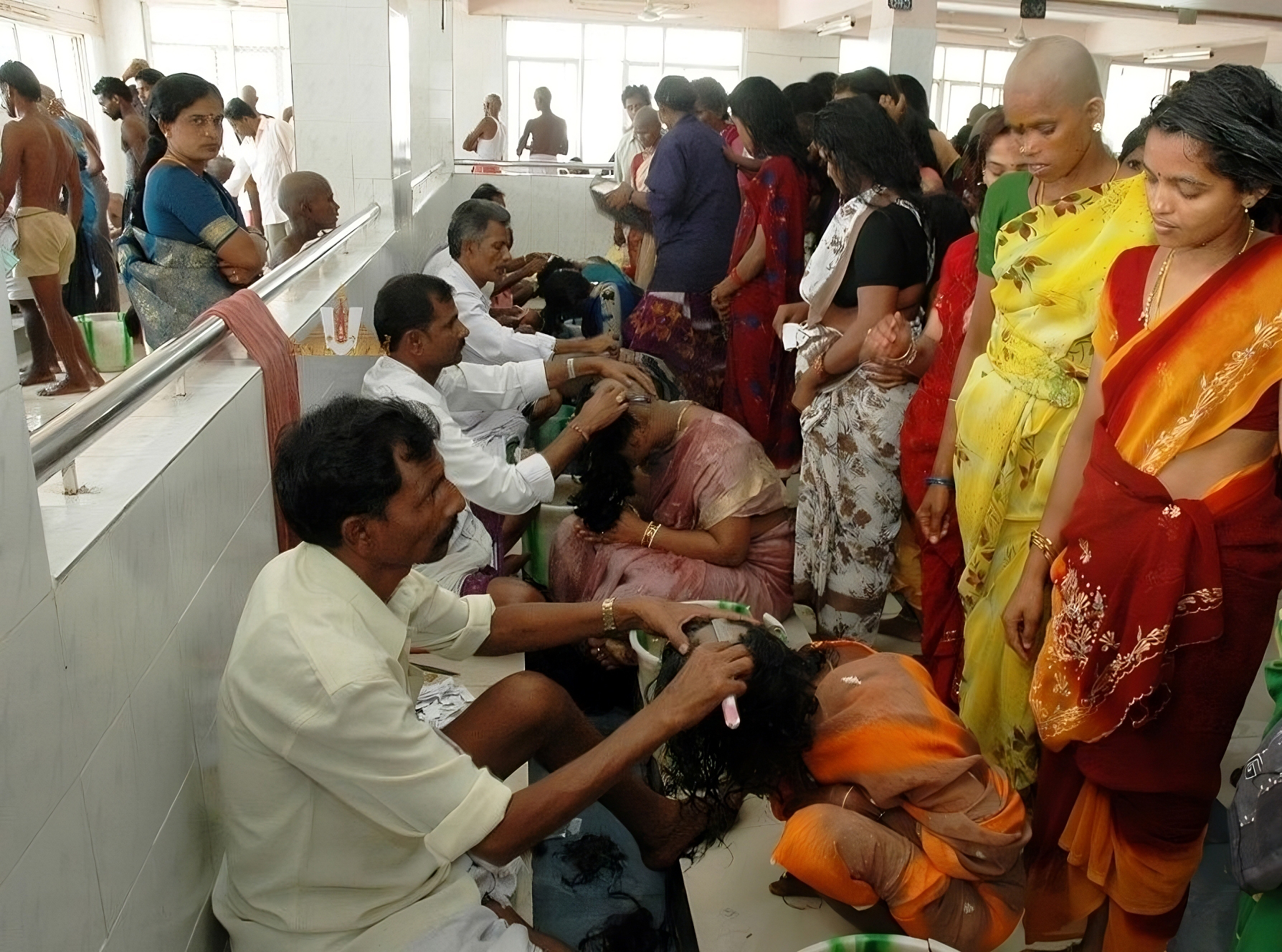ETHICAL SOURCING
A Ancient Ritual
For over 5000 years, Hinduism has been entwined in the rich culture of India. For Hindus, every part of life is a sacrifice. a giving of oneself or ‘Jivayajna’ for which one receives true spiritual fulfilment. On a daily basis, devout pilgrims travel to temples across India to pay homage to their gods by making an offering to the temple. Tirupati Venkateswara Temple (or the Temple of Seven Hills), is one of the largest and most popular of Hindu temples.
Located on the top of Tirumala hills, this temple attracts thousands of worshippers a day from all over the world who queue up from early in the morning to late at night. Worshippers donate objects such as gold trinkets. personal possessions or their hair, a symbolic offering to show their devotion to the deity. This ritual shaving of one’s hair is known as tonsuring.
In the past, tonsuring was a symbol of repentance, a devotee would ask for forgiveness and their shaved head was a sign of starting a new life. Today, pilgrims make an oath with god and should their prayers be answered, they shave their heads as a precious sacrifice and sign of gratitude and faith.



